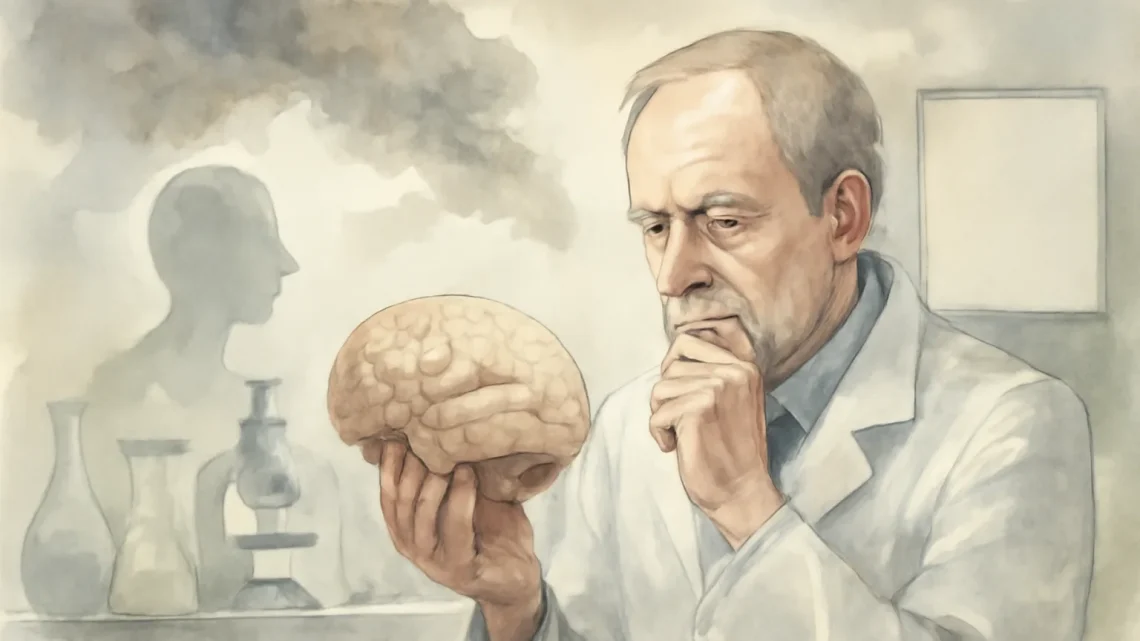
Experts Warn of Growing Threat from Neuro-Weapons
November 22, 2025New research highlights risks of chemical agents targeting the brain
Academics from the University of Bradford have issued a warning about the increasing threat posed by chemical neuro-weapons designed to affect the human brain and central nervous system (CNS). Their recent publication examines how advances in neuroscience, pharmacology, and artificial intelligence (AI) could enable new forms of warfare that target cognition, behaviour, and perception.
Emerging risks from CNS-acting chemicals
The book, Preventing Weaponization of CNS-acting Chemicals: A Holistic Arms Control Analysis, co-authored by Dr Michael Crowley and Professor Malcolm Dando, explores the convergence of scientific fields that may facilitate the development of chemical agents capable of manipulating mental processes. The authors argue that the ability to chemically alter consciousness, memory, or behaviour is no longer theoretical but a growing concern for global security.
Dr Crowley stated, “We are entering an era where the brain itself could become a battlefield. The tools to manipulate the central nervous system—to sedate, confuse, or even coerce—are becoming more precise, more accessible, and more attractive to states.”
Historical context and modern developments
The book traces the history of CNS-acting chemical research, including Cold War experiments by the CIA and Soviet Union, and more recent incidents such as the 2002 Moscow theatre siege. During that event, Russian forces used aerosolised fentanyl derivatives to incapacitate hostage-takers, which resulted in the deaths of over 120 hostages.
While earlier attempts at developing such weapons were limited by technology and knowledge, current advances in neuroscience, synthetic biology, AI, and delivery systems have increased the potential for precise and controlled manipulation of brain functions. For example, scientists are now mapping neural pathways related to fear, sleep, aggression, and decision-making, which could be targeted for both therapeutic and hostile purposes.
Professor Dando commented, “The same knowledge that helps us treat neurological disorders could be used to disrupt cognition, induce compliance, or even in the future turn people into unwitting agents. That’s the dual-use dilemma we face.”
Regulatory challenges and gaps
The authors highlight that current international treaties, including the Biological and Toxin Weapons Convention (BTWC) and the Chemical Weapons Convention (CWC), have loopholes and ambiguities regarding CNS-acting agents. These treaties prohibit the development and use of chemical and biological weapons but allow certain chemicals to be used in law enforcement, which could be exploited to justify weaponisation.
Dr Crowley noted, “There are dangerous regulatory gaps within and between these treaties. Unless they are closed, we fear certain states may be emboldened to exploit them in dedicated CNS and broader incapacitating agent weapons programmes.”
Proposed framework for arms control
To address these issues, the authors propose a new approach called Holistic Arms Control (HAC). This framework integrates multiple layers of governance, including:
- International human rights law
- International humanitarian law
- UN drug conventions
- Medical ethics
- Codes of conduct for scientific professionals
Practical recommendations include:
- Establishing a dedicated working group on CNS-acting and incapacitating agents within the Organisation for the Prohibition of Chemical Weapons (OPCW)
- Updating treaty definitions and guidance to reflect scientific advances
- Strengthening monitoring and verification mechanisms
- Embedding dual-use awareness and ethics training in neuroscience and related scientific education
- Encouraging active roles for scientists and civil society in treaty implementation and monitoring
Professor Dando emphasised the need for proactive governance, stating, “The science is moving fast—our regulatory systems need to catch up.”
Looking ahead
The authors stress that their aim is not to hinder scientific progress but to ensure it is conducted within ethical and legal safeguards. They warn that without timely action, the weaponisation of neuroscience could become more likely.
Dr Crowley concluded, “This is a wake-up call. We must act now to protect the integrity of science and the sanctity of the human mind.”




































